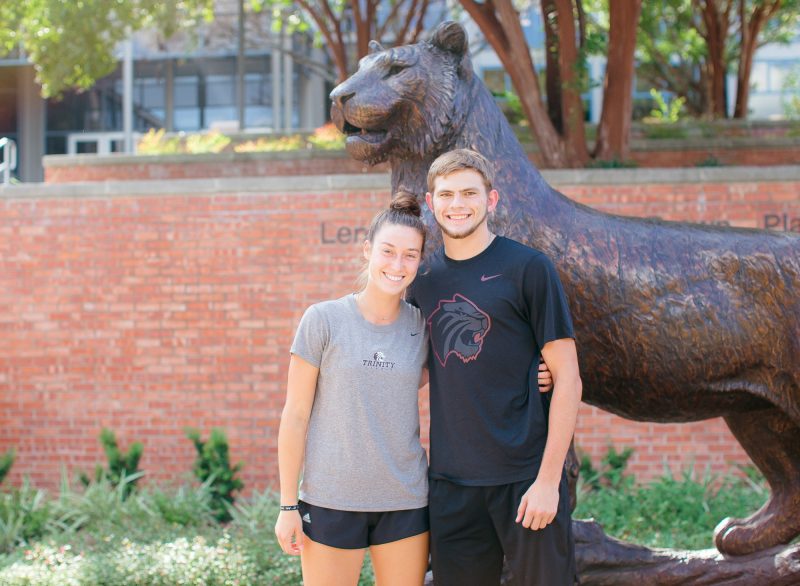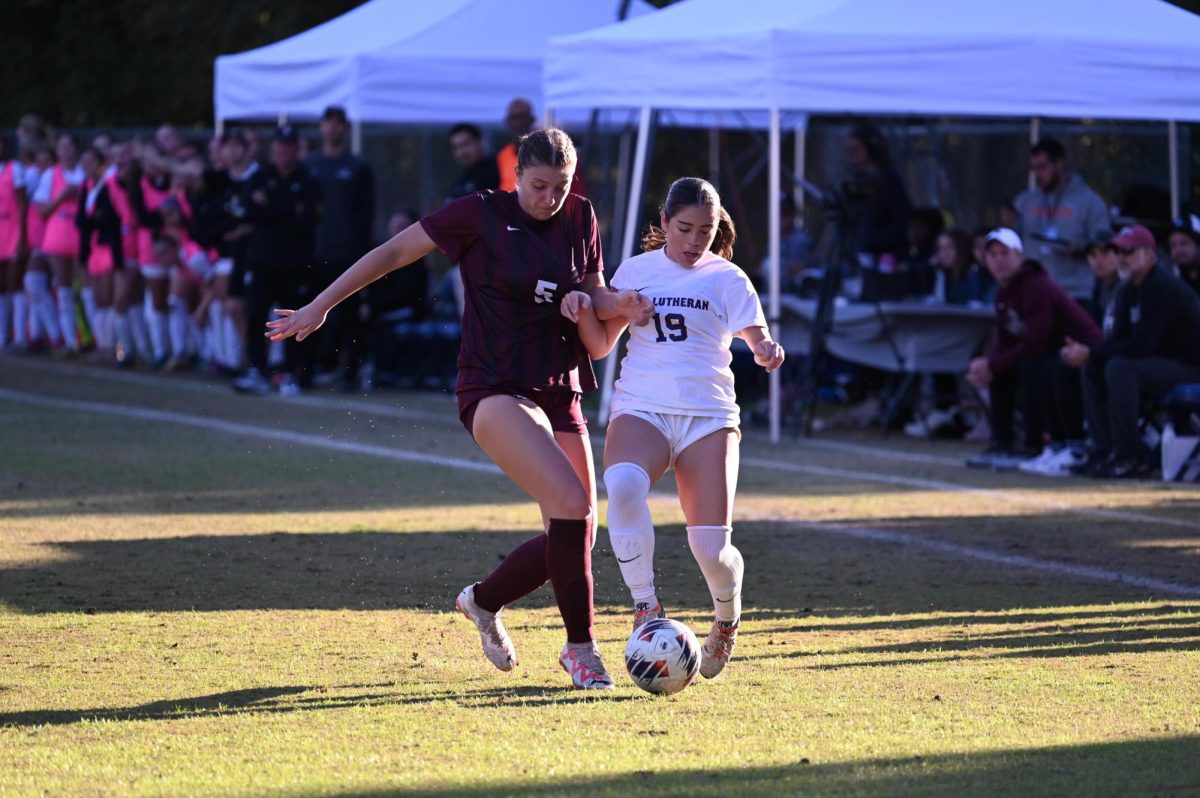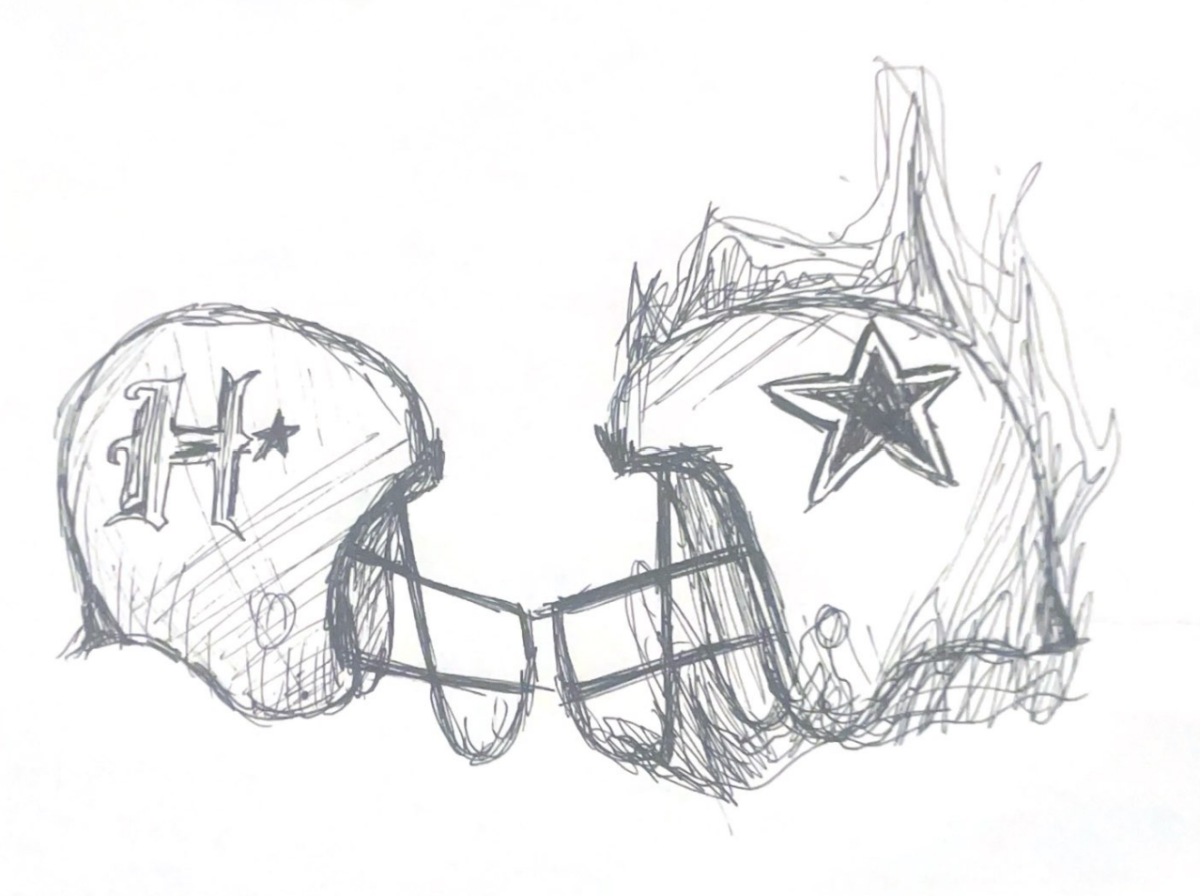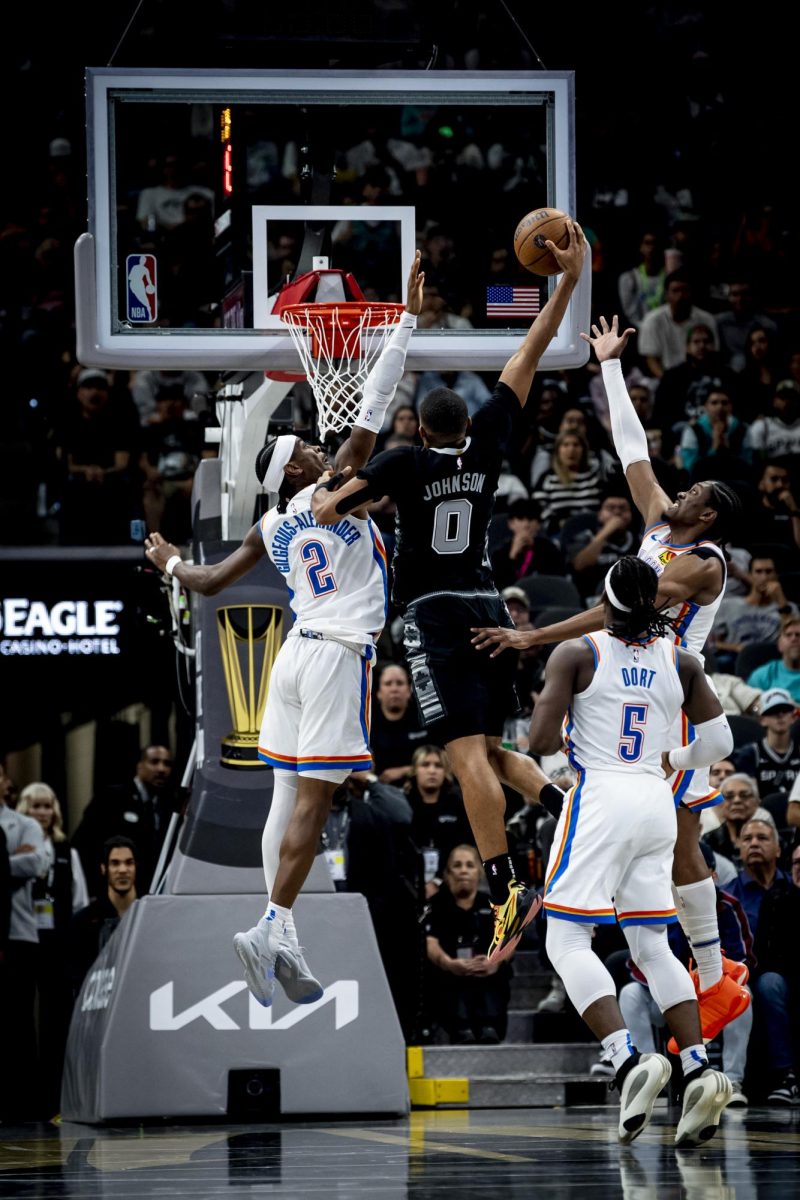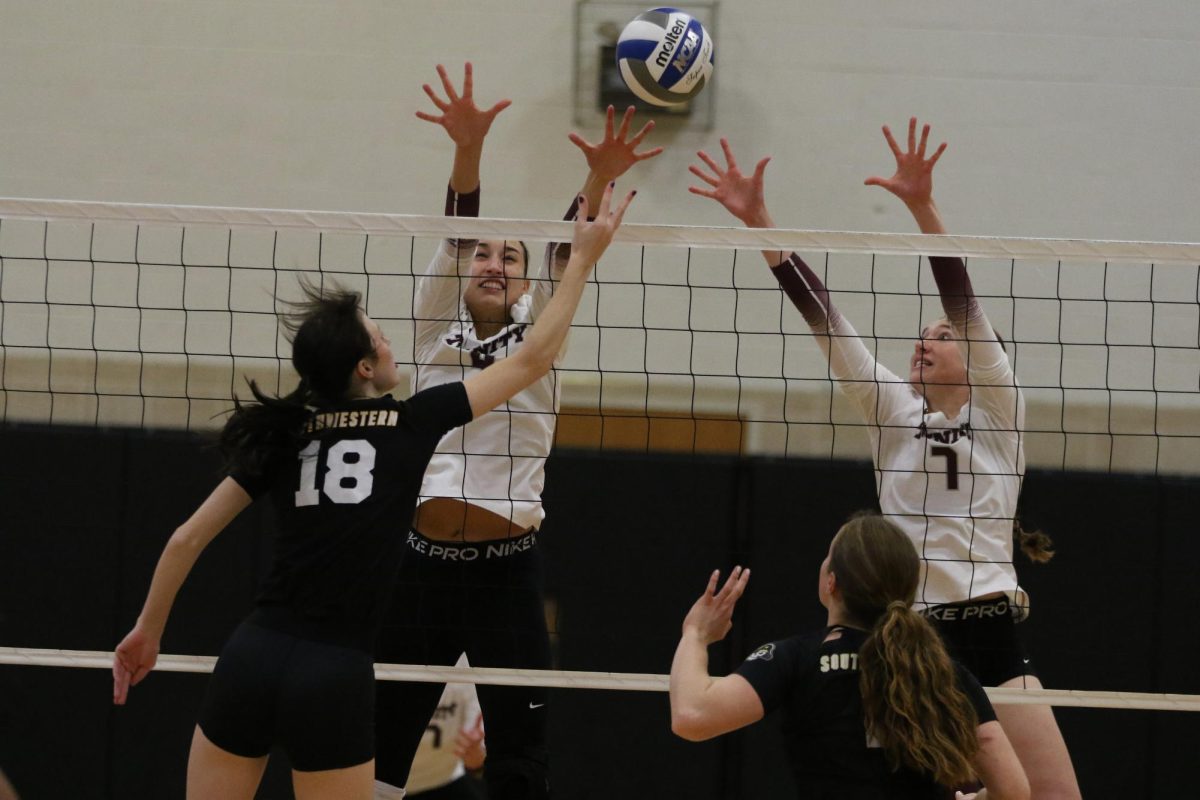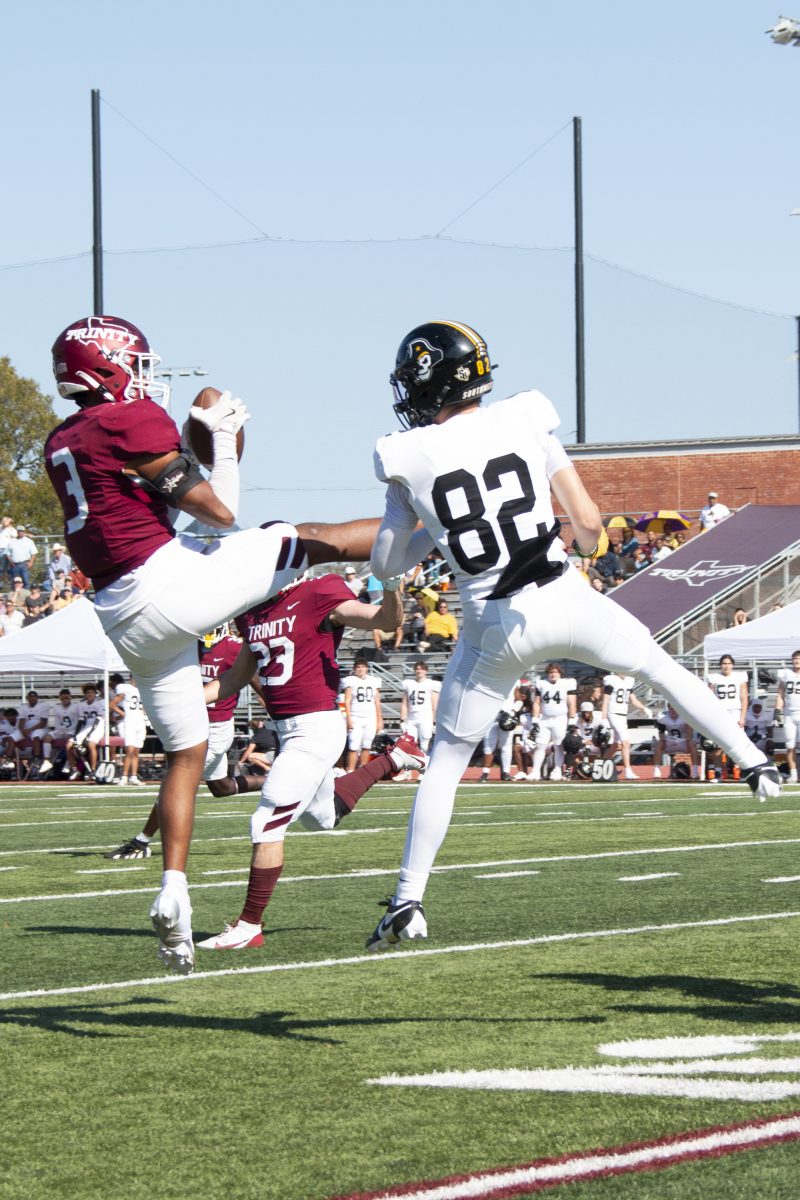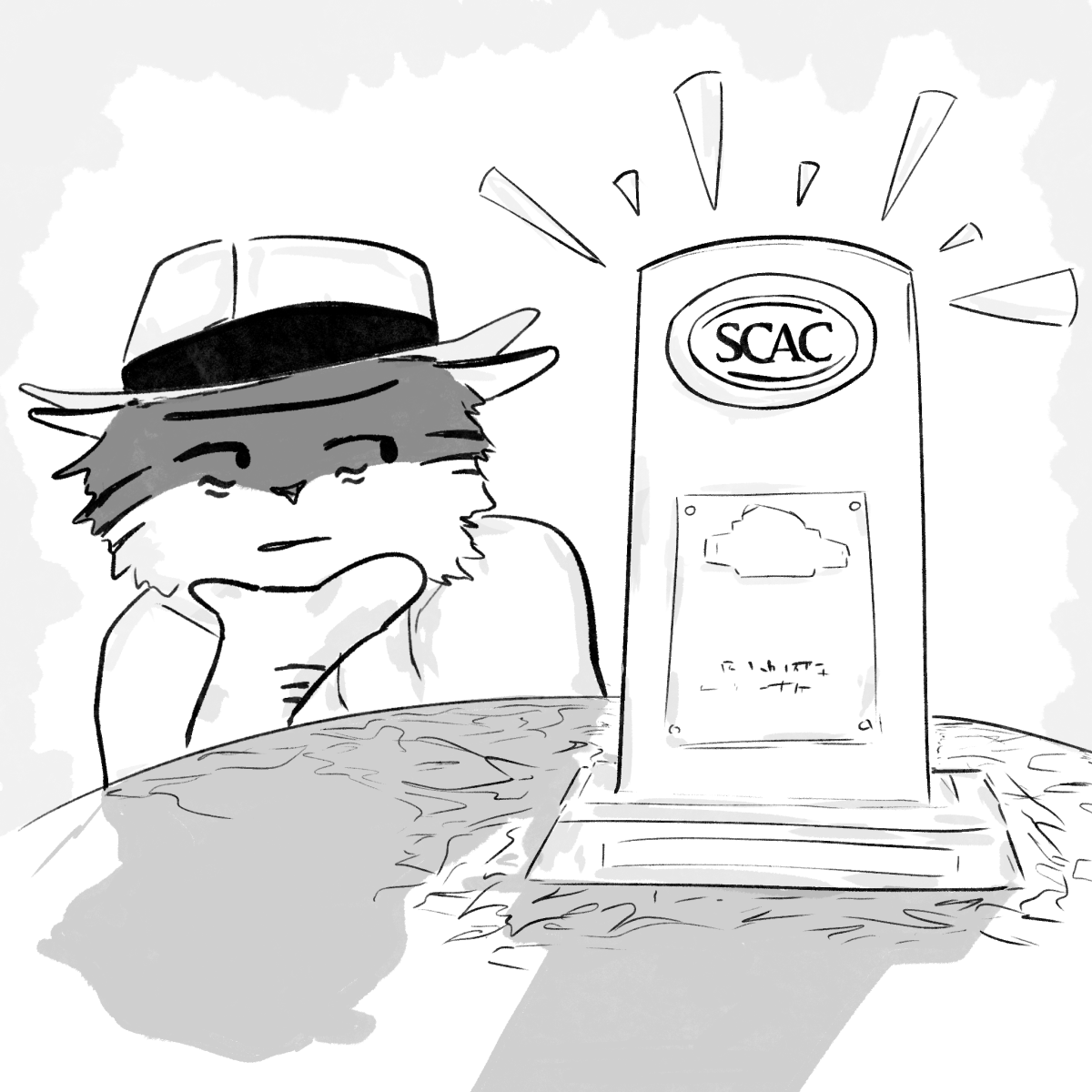Collegiate athletes participate in the “normal” aspects of college routines. They work to ace their classes, succeed in extracurricular commitments, manage a living space and enjoy social obligations, all while incorporating the time commitment of their sport. National Collegiate Athletic Association (NCAA) participation is strenuous: coaches require athletes to attend several hours of practice each week, manage their physical conditioning through workouts, eat healthily and miss class for off-campus competitions. By participating in a varsity sport, Trinity’s athletes recognize that they are challenging themselves to a huge commitment.
Despite this, there are an elite few that successfully participate in not just one but two sports for the Tigers. Among these accomplished individuals is Annie Wise, a sophomore on Trinity’s women’s basketball and tennis teams, and Cash Crane, a sophomore on Trinity’s football and baseball teams.
Annie Wise started playing basketball in her hometown of Tulsa, Oklahoma when she was six years old. Her father introduced her to tennis when she was 11. As her athletic capabilities advanced, Wise found herself entangled in the NCAA recruitment process.
“I always knew I wanted to play a sport in college. However, I was told by everyone that I was too late in deciding which sport. During middle school, most kids knew which sport they were going to continue focusing their time on, but for me that decision was too difficult to make,” Wise said.
Given this, she tasked herself with searching for a school that supported all of her academic, basketball and tennis goals.
The perfect school for Annie Wise turned out to be Trinity University. Here, she competes as both a member of the women’s tennis team and a shooting guard and small forward for the women’s basketball team.
Although she enjoys playing for two teams, Wise recognizes that there are sacrifices associated with the opportunity.
“Having conflicting seasons with both basketball and tennis is one of the most frustrating things about playing two sports in college. It is tough because every athlete at Trinity is here to compete and play the sport they love. However, some of the most memorable times are made off the court. Even just missing out on team dinners, plane rides or the dreaded morning lifts is always disappointing,” Wise said. “But on the other hand, balancing your time is something that everyone at Trinity must do to succeed. I feel like sports are a great outlet to demonstrate that life is all about sacrifices, whether that means less social time, fewer moments to yourself or less sleep. Overall, the professors, trainers and coaches greatly help the athletes on campus by working through any issues we might be having.”
The assistant coach for Trinity’s women’s tennis team, Jacob Carrillo, said, “Annie Wise is a great all-around person. She’s an extremely hard worker and a great team player. My favorite character trait about her is that she is a very genuine person. I hope that she enjoys her time here at Trinity, on and off the courts. Most importantly, I hope that she grows into the person that she aspires to be.”
Cash Crane, an accounting major from Jewett, Texas, was introduced to baseball at the age of four but didn’t participate in select/travel ball until he was 12. He has played football as a pastime since the age of six, and began competitive football when he played for his middle school in the seventh grade. “It was nothing for us to go out into the yard when I was three or four to throw around a football. Some of my earliest memories as a kid are with a football in my hand,” Crane said.
Although he still appreciates the fun aspects of football and baseball, Crane recognizes that his athletic commitment has developed beyond playing as a hobby.
“To accommodate for training and competition schedules, I make an effort to take a balanced workload, which usually is about 15 credit hours. I also just try to manage time well. With traveling during the season, I really have to make sure that i don’t fall behind or procrastinate much on work,” Crane said.
Currently, Crane plays as a wide receiver for Trinity’s football team and a pitcher for Trinity’s baseball team.
“I chose Trinity first and foremost for the academics, because once my playing days are over, the degree will help me out later in life. Outside of the academics, the coaches really sold me on the football program with their goal of making the program nationally prominent again, as well as the opportunity to join a new conference and try to win a conference championship. It was also great to have the opportunity to play for one of the best [Division III] baseball programs in the country that was just one year removed from winning a national title,” Crane said.
Overall, Wise and Crane share similar advice for athletes seeking to play two sports in college.
“Make sure that during your time in each sport, you are all in. There should be no excuses. You have to prove to yourself that you are meant to be there for both teams, and whatever your role is as a player and teammate, you have to show up and be the best athlete you can be,” Wise said.
“My advice to anyone looking to play two sports in college is that you shouldn’t let the potential challenge discourage you from trying. If you decide to do it, just embrace the grind of it. Few people will have the opportunity to perform at this level, so you should try to enjoy the entire experience. It’s something you will cherish for the rest of your life,” Crane said.

